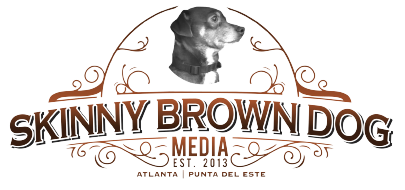As writers, we’re constantly trying to connect with readers, but it can be easy to overlook the powerful ways that psychology influences how people respond to our work. Lately, I’ve been fascinated by some psychological quirks that can make a big impact when it comes to writing, particularly in marketing. One of my favorites is the Eaton-Rosen phenomenon, also known as The Rhyme as Reason Effect.
What’s the Eaton-Rosen Phenomenon?
Have you ever noticed that things that rhyme tend to feel more believable? This phenomenon explains why rhyming statements are more likely to be perceived as true or memorable. A famous example of this is from the O.J. Simpson trial when Johnnie Cochrane said, “If it doesn’t fit, you must acquit.” That rhyme packed a punch—it made a legal argument sound not only catchy but convincing.
For authors, this is a golden opportunity. Think about how you can incorporate catchy rhymes to make your book stand out in readers’ minds.
The Power of Rhyme in Your Marketing
Let’s say you’re marketing a thriller novel. You could play around with phrases like:
- “You’ll lose track of time when you’re wrapped up in In Too Deep’s sinister crime.”
- “Don’t read In Too Deep unless you’re willing to lose sleep.”
Both examples use rhyme to create a memorable impression. And though rhymes can sometimes come across as cheesy, when done right, they can be incredibly effective at sticking with your audience.
Enter Cognitive Fluency Bias
This brings us to another fun psychological quirk: Cognitive Fluency Bias. This concept explains that we are more likely to believe and trust ideas that are simple and easy to understand. The clearer your message, the more believable it becomes.
This is crucial for book marketing because potential readers are bombarded with options. If your book description or sales copy is too complicated, readers may move on to the next book. Keep it simple, keep it clear.
How I Use Cognitive Fluency When Teaching
When I’m coaching authors on writing hooks, I often come back to simple, memorable phrases. For example, “Hooks sell books” or “If you want to sell books, focus on your hooks.” These short, punchy lines capture attention while being easy to remember. You can see how the combination of rhyme and cognitive fluency works together to reinforce a message.
I also recommend using tools like the Hemingway Editor to simplify your copy. I aim for a 6th-grade reading level or below when drafting book descriptions or marketing materials. The clearer and simpler the language, the more accessible it is to readers. You don’t want potential buyers stumbling over complex sentences—give them something that flows smoothly and is easy to digest.
Alliteration for the Win
Not a fan of rhymes? No problem! Another way to make your writing more memorable is through alliteration. Phrases like “buy books, build buzz” or “creative characters captivate” are easy to remember and roll off the tongue. Alliteration is less risky than rhyming because it often feels more natural, but it’s still a fun and effective way to make your message stick.
Wrapping It Up
Next time you’re working on marketing your book, think about how you can apply these psychological quirks. Whether you’re using rhyme, simplifying your copy, or sprinkling in some alliteration, you’ll be creating marketing materials that resonate with readers—and that’s the key to driving sales.
What strategies have you found effective in promoting your books? Drop a comment below—I’d love to hear your thoughts!
Ready to Make Your Book Stand Out?
If you’re looking to craft unforgettable hooks and market your book with the power of psychology, we can help! Visit Skinny Brown Dog Media to learn more about how we can guide you from manuscript to marketing success. Let’s make your book the one readers can’t put down!




